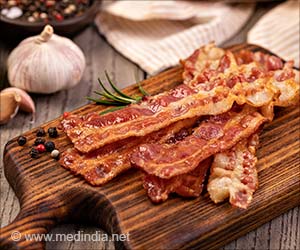Investigation raises concerns about aspartame's potential carcinogenicity
- Aspartame, an artificial sweetener 200 times sweeter than table sugar, is facing potential classification as a possible carcinogen
- Products such as diet sodas, chewing gum, low-sugar juices, and sugar-free desserts commonly contain aspartame as a sweetening agent //
- There are other artificial sweeteners available and approved by WHO, as well as plant- and fruit-based sweeteners approved by the FDA
Aspartame: A Potential Carcinogen
Aspartame, a synthetic sweetener known for its intense sweetness that is approximately 200 times greater than table sugar, is facing increased scrutiny. The International Agency for Research on Cancer (IARC) and the World Health Organization (WHO) are considering the classification of aspartame as a possible carcinogen. Sources familiar with the matter indicate that the IARC is preparing to designate aspartame as "possibly carcinogenic to humans" for the first time in July. This decision follows a comprehensive evaluation of published evidence conducted by external experts. It is important to note that this assessment does not take into account the safe consumption levels of aspartame for individuals. Such guidance is provided separately by the Joint WHO and Food and Agriculture Organization's Expert Committee on Food Additives (JECFA), in conjunction with determinations made by national regulators, as reported by Reuters.Products that Contain Aspartame
Various food and beverage items utilize aspartame as a sweetening agent, including:- Diet sodas, such as Diet Coke.
- Mars' Extra chewing gum.
- Low-sugar juices.
- Sugar-free puddings and desserts.
- Sugar-free jams.
- Cereals.
- Low-calorie coffee sweeteners.
- Trends in Company Usage of Aspartame.
Companies have Debated and Altered their use of Aspartame
The utilization of aspartame in food products has been a topic of debate for many years, prompting some companies to remove the compound from their offerings. PepsiCo, for example, initially eliminated aspartame from certain diet soda options in the United States. Although the company reintroduced it a year later, they once again removed the ingredient in 2020.Alternatives to Aspartame
Apart from aspartame, there are several other artificial sweeteners authorized by a WHO expert committee on food additives, including saccharin , sucralose , and neotame. Additionally, the U.S. Food and Drug Administration (FDA) has approved the usage of three types of plant- and fruit-based sweeteners, namely extracts derived from the
Artificial Sweeteners and Cancer
Go to source).
Global Safety Assessments of Aspartame
Over ninety countries, including the United Kingdom, Spain, France, Italy, Denmark, Germany, Australia, and New Zealand, have conducted safety assessments of aspartame. These assessments have concluded that aspartame is safe for human consumption and therefore permits its use in food and beverages.
Reference:
- Artificial Sweeteners and Cancer - (https://www.cancer.gov/about-cancer/causes-prevention/risk/diet/artificial-sweeteners-fact-sheet) Source-Medindia
















